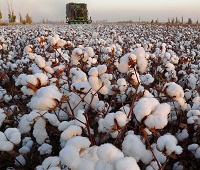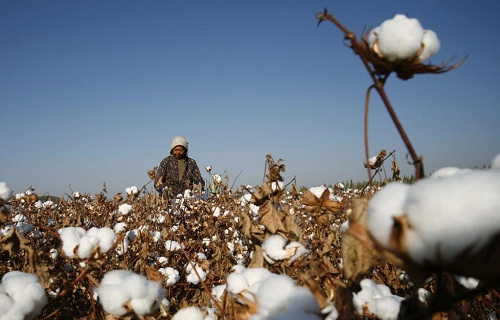 US government’s recent order to seize cotton and cotton products from the Xinjiang country would have far-reaching ramifications for US apparel retail industry, says the Worker Rights Consortium. As stated in a Quartz report, the order is likely to impact the supply chains of virtually every major apparel retailer in the country—from Amazon, to Target, to Zara.
US government’s recent order to seize cotton and cotton products from the Xinjiang country would have far-reaching ramifications for US apparel retail industry, says the Worker Rights Consortium. As stated in a Quartz report, the order is likely to impact the supply chains of virtually every major apparel retailer in the country—from Amazon, to Target, to Zara.
The order directs US Customs and Border Protection to detain incoming products suspected of using XPCC cotton. It is by far the most wide-reaching customs ban on US imports, say Laura T Murphy, Professor, Sheffield Hallam University and Rian Thum, Senior Research Fellow, University of Nottingham. Given China’s status as one of the world’s largest cotton producers, the order is likely to affect 500 million US imports containing XPCC every year.
Already, there is confusion amongst US companies over the implementation of the order, states Steve Lamar, President and CEO, American Apparel & Footwear Association (AAFA). The order applies not only to products made with cotton produced by XPCC, but also to those made by its subordinate and affiliated companies. However, the order does not elaborate on its definition of subordinate or affiliated entity. XPCC is a quasi-milatary organization that has around 86,000 subordinates. The US government has not clarified on these which had created a lot of confusion amongst industry leaders.
Footwear Association (AAFA). The order applies not only to products made with cotton produced by XPCC, but also to those made by its subordinate and affiliated companies. However, the order does not elaborate on its definition of subordinate or affiliated entity. XPCC is a quasi-milatary organization that has around 86,000 subordinates. The US government has not clarified on these which had created a lot of confusion amongst industry leaders.
Lack of clarity
Moreover there is lack of clarity over the implementation of the order, says Nate Herman, Senior Vice President, AAFA. The Customs and Border Protection (CPB) department has not revealed how it will enforce action, and does the order apply only to products coming from China, or other countries as well, etc. CBP has also not provided additional clarity on the language in the order or how it intends to identify products made with cotton from XPCC or any affiliates
In response to the order, AAFA and other trade groups, have released a joint statement that pointed out forced labor can be kept out of member supply chains by forming a coalition of stakeholders and countries. Companies should have zero tolerance for forced labor in their supply chains, says Lamar. However, labor and human rights groups hold apparel companies responsible for materials that go into their products. Omer Kanat, Executive Director, Uyghur Human Rights Project says, international companies that import goods produced by the XPCC, are complicit in human rights crimes.
Each level of a globalized supply chain is shrouded in a level of obscurity. For instance an American brand that places orders for 100 shirts with a Bangladesh factory, may not be aware of its raw material suppliers. To trace the origin of its cotton, it needs to trace each level of its production process. Often, long-staple cotton used by apparel manufacturers is grown in Xinjiang, India, the US, Brazil, and elsewhere. This raw cotton is processed by factories in China that often employ forced labor these practices. Lack of supply-chain transparency often leads to human rights abuses in the fashion industry.
For the last few years, companies have been tracing their supply chain partners. AAFA’s member companies have also been mapping their supply chains in Xinjiang to avoid any direct links to the organization. As China has 20 per cent of the world’s cotton production, it may be difficult for fashion companies to avoid Chinese cotton. However, they can avoid abetting forced labor by tracing its origin.












